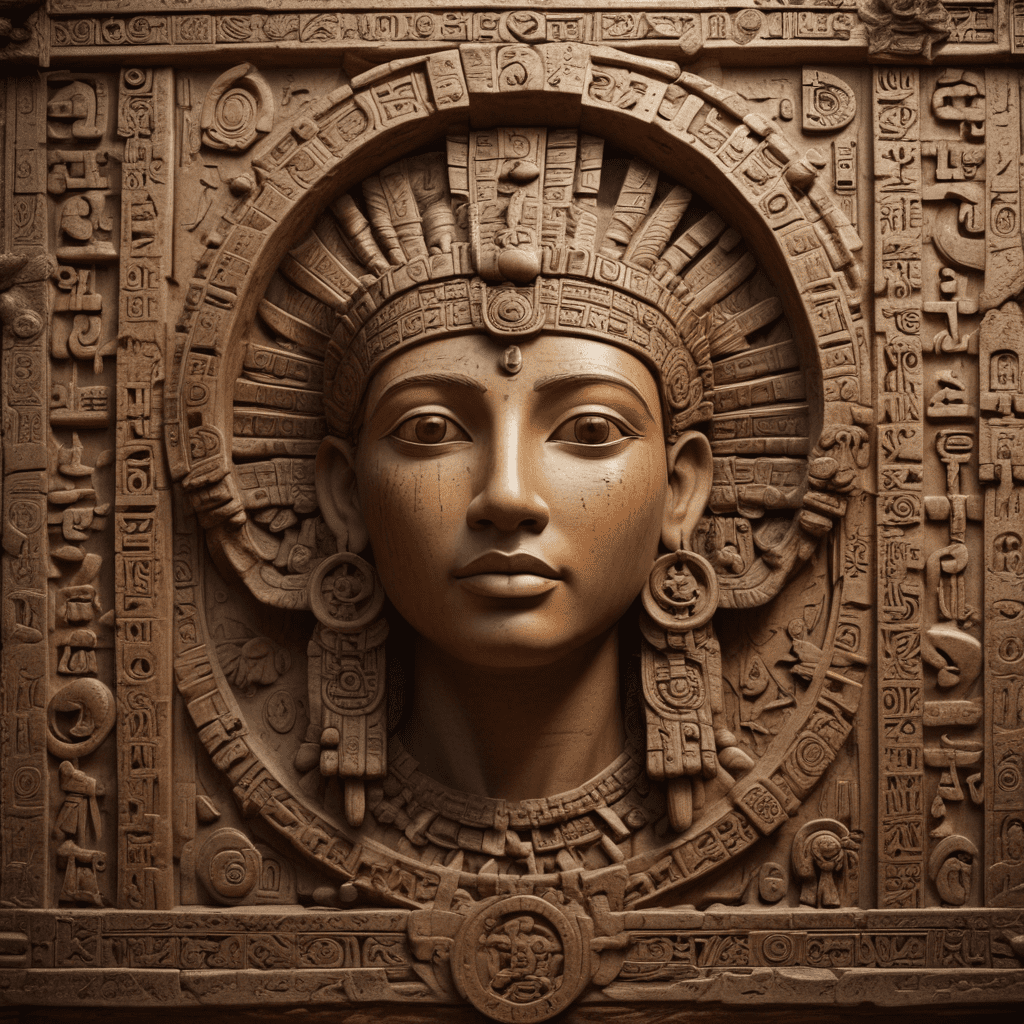Moral Myths and the Concept of Sacrifice: A Deep Dive
I. Introduction
The concept of moral myths plays a significant role in shaping our understanding of ethical behavior and decision-making. Moral myths can be defined as cultural narratives that carry moral significance, often influencing societal norms and individual beliefs. One of the most profound moral myths revolves around the concept of sacrifice, which has been a cornerstone of moral philosophy throughout history.
This article will explore the intricate relationship between moral myths and sacrifice, examining historical perspectives, psychological underpinnings, and modern implications. By delving into these areas, we aim to shed light on how sacrifice is perceived and understood in contemporary society, highlighting its significance in moral reasoning.
II. Historical Perspectives on Sacrifice
A. Ancient civilizations and their views on sacrifice
In ancient civilizations, sacrifice was often intertwined with religious practices and societal rituals. Cultures such as the Mesopotamians, Egyptians, and Greeks viewed sacrifice as a means to appease deities or ensure prosperity.
B. Evolution of the concept through religious texts
Religious texts, including the Bible and the Quran, illustrate various forms of sacrifice, ranging from animal offerings to the ultimate sacrifice of self. These narratives have significantly shaped moral frameworks across cultures.
C. Sacrifice in classical philosophy: Plato and Aristotle
Philosophers like Plato and Aristotle contributed to the discourse on sacrifice by linking it to virtue and moral development. Plato emphasized the importance of self-sacrifice for the greater good, while Aristotle viewed it as part of a virtuous life.
III. The Psychological Underpinnings of Sacrifice
A. The role of empathy in sacrificial decisions
Empathy is crucial in understanding why individuals make sacrifices. The ability to empathize with others often drives people to act selflessly, prioritizing the needs of others over their own.
B. Cognitive dissonance and moral justification
Cognitive dissonance can arise when individuals struggle to reconcile their actions with their moral beliefs. This struggle often leads to moral justification for sacrifices made, even if those sacrifices conflict with personal interests.
C. Social and cultural influences on perceptions of sacrifice
Societal norms and cultural narratives significantly influence how sacrifice is perceived. In some cultures, sacrifice is celebrated as a noble act, while in others, it may be viewed with skepticism.
IV. Moral Myths: Definitions and Examples
A. What constitutes a moral myth?
A moral myth is a story or belief that upholds a particular moral principle, often serving to guide individual or collective behavior. These myths can provide a framework for understanding right and wrong.
B. Common examples of moral myths related to sacrifice
- The martyrdom myth: The idea that suffering for a cause grants moral superiority.
- The hero’s journey: The narrative arc where the hero sacrifices personal gain for the greater good.
- The selfless parent: The belief that parents must sacrifice their desires for their children’s well-being.
C. The impact of these myths on contemporary moral reasoning
Moral myths surrounding sacrifice shape contemporary ethical discussions, influencing how individuals and societies approach moral dilemmas. They can inspire altruism but may also create unrealistic expectations.
V. Sacrifice in Modern Ethics
A. Utilitarianism and the value of sacrifice
Utilitarian ethics often emphasizes the importance of sacrifice for the greater good, advocating for actions that maximize overall happiness, even if that requires individual sacrifices.
B. Deontological perspectives on the morality of sacrifice
Deontological ethics, on the other hand, focuses on the inherent morality of actions. From this perspective, sacrifice must adhere to moral rules and duties, regardless of the consequences.
C. Virtue ethics and the character of the sacrificial individual
Virtue ethics emphasizes the character of individuals making sacrificial choices. It posits that true sacrifice stems from virtuous intentions and moral integrity.
VI. The Role of Sacrifice in Society
A. Sacrifice as a social glue: Cohesion and identity
Sacrifice often serves to bind communities together, reinforcing shared values and identities. Collective sacrifices can foster a sense of belonging and mutual responsibility.
B. Sacrificial narratives in politics and leadership
Political leaders frequently invoke narratives of sacrifice to rally support and unify their constituents. These narratives can legitimize actions taken in the name of the collective good.
C. The commercialization of sacrifice in modern culture
In contemporary culture, the concept of sacrifice has been commercialized, often manifesting in the form of marketing strategies that exploit the emotional resonance of sacrifice for profit.
VII. Critiques of Sacrificial Morality
A. Ethical dilemmas and the potential for exploitation
While sacrifice can be noble, it can also lead to exploitation, particularly when individuals are pressured to sacrifice for others without consideration of their own needs.
B. The paradox of sacrifice: When does it become harmful?
The line between noble sacrifice and harmful self-denial can be blurred. Understanding when sacrifice becomes detrimental is essential for ethical discourse.
C. Feminist critiques of traditional sacrificial roles
Feminist perspectives often critique traditional sacrificial roles, arguing that they can perpetuate gender inequalities and reinforce harmful stereotypes about women’s roles in society.
VIII. Case Studies of Sacrifice
A. Historical figures who embodied sacrifice (e.g., Martin Luther King Jr.)
Figures like Martin Luther King Jr. exemplify the profound impact of sacrifice in the fight for justice and equality. His willingness to sacrifice personal safety for the civil rights movement serves as a powerful case study.
B. Sacrifice in literature and cinema: Analyzing key narratives
Literature and cinema often explore themes of sacrifice, from classic tales like “Les Misérables” to contemporary films that grapple with the moral implications of selflessness.
C. Contemporary examples of sacrifice in humanitarian efforts
Modern humanitarian efforts often highlight the sacrifices made by individuals and organizations working to alleviate suffering and promote social justice.
IX. Reimagining Sacrifice in a Modern Context
A. Alternative forms of sacrifice in a globalized world
In a globalized society, sacrifice can take on new forms, such as environmental activism, which requires individuals to make lifestyle changes for the sake of future generations.
B. The intersection of sacrifice with technology and social media
Technology and social media have transformed how sacrifice is perceived and enacted, allowing for greater visibility and awareness of sacrificial acts.
C. Future implications of sacrificial concepts in moral philosophy
As society evolves, the concepts of sacrifice will continue to be reexamined, challenging traditional notions and expanding the moral landscape.
X. Conclusion
In summary, the exploration of moral myths and the concept of sacrifice reveals deep-rooted cultural narratives that shape our ethical frameworks. The historical perspectives, psychological factors, and modern implications of sacrifice underscore its significance in moral philosophy.
As we reflect on the relevance of these ideas today, it is crucial to engage in critical thinking regarding the nature of sacrifice and its moral implications. By doing so, we can better navigate the complexities of ethical decision-making in contemporary society.



